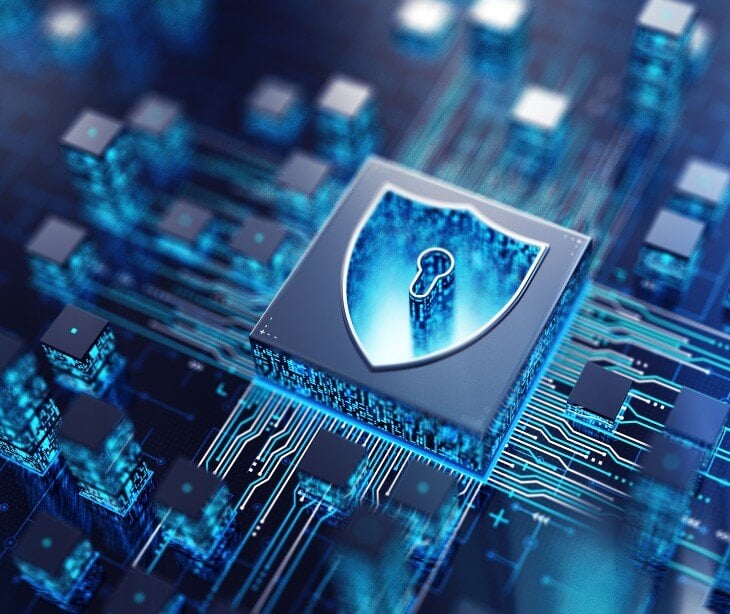3 min read
Strategies for child psychologists using email in custody challenges
Kirsten Peremore
July 03, 2024

A structured approach to email communication allows child psychologists to effectively manage their role in custody cases. This contributes positively to the decision-making process while safeguarding the child’s privacy.
The role of child psychologists in custody challenges
In a custody battle, a child psychologist steps in as an advocate for the child’s emotional and mental well-being. These experts dive into the family’s dynamics, evaluating the child’s relationships with parents and siblings to gauge the best possible living arrangements for the child. Their toolkit isn’t just limited to interviews and observations; they also administer psychological tests to understand the child's needs at a deeper level.
An alternative function of the psychologist in the courtroom is discussed in a study published in Family Court Review, “This role has been expanded in child custody cases
to utilize an expert, typically a psychologist, to determine the “best interest of the child” on
issues that the parents dispute (Kelly, I994,2001a, 2001b). Typically, referrals for this alternative dispute resolution process occur in only the most high-conflict case…”
Every piece of information they share is regulated by HIPAA, which ensures that sensitive data is handled with the utmost care. This law requires a balance between the need to inform the court while fiercely protecting the child’s privacy. They can’t just spill everything they know—they must meticulously select what’s necessary for the case.
The use of email in navigating custody court communications
Child psychologists are required to articulate their findings and insights about a child's psychological state with both precision and sensitivity. This contribution often includes detailed psychological assessments, observations from interactions with the child, and evaluations of the child’s responses to family dynamics. This information informs the court's decisions regarding the most supportive and beneficial environment for the child's development.
The type of information communicated by child psychologists typically encompasses detailed reports, notes from therapeutic sessions, outcomes of psychological tests, and, their professional recommendations regarding custody arrangements. Each piece of information serves to build a comprehensive picture of the child’s emotional and mental health, aiding the court in making decisions that prioritize the child's best interests.
Email serves as a highly effective channel for this communication, especially given the volume and sensitivity of the information exchanged. By utilizing HIPAA compliant email services, child psychologists can securely transmit sensitive data. This method supports the safe exchange of documents and communications between psychologists and those involved in the legal process.
Strategies to apply
- Maintain clear and organized email chains for each case. Use subject lines effectively by including the case name, date, and a brief description of the email’s content.
- When sending psychological evaluations or detailed reports, convert them into encrypted PDF formats. Provide the decryption key through a secure, separate communication to protect sensitive information.
- Develop structured templates for assessment reports, updates, and other communications that require consistent information sharing. These templates should include sections for background information, assessment findings, recommendations, and any changes in the child’s psychological state.
- Before discussing detailed personal information over email, ensure that digital consent forms are signed and returned by all legal guardians, authorizing the exchange of the child's psychological information. Use email to send, receive, and store these consent forms securely.
- Implement a review process where any outgoing email containing sensitive information is first checked by a colleague or a legal advisor. This double-check mechanism can help prevent accidental disclosure of unauthorized information.
- Coordinate the timing of your email communications with key court dates and deadlines. Provide psychological findings and reports sufficiently in advance of hearings to ensure that they can be reviewed and included in the proceedings.
- Use blind carbon copy (BCC) when sending information that needs to be shared with multiple parties independently to maintain confidentiality. Additionally, always maintain a formal and professional tone to reflect the seriousness and sensitivity of the information being handled.
See also: Top 12 HIPAA compliant email services
FAQs
What is BCC?
BCC is a way to send emails to multiple recipients without them seeing each other's email addresses.
What is PHI?
Protected health information refers to any health information that can be used to identify an individual and that is created, used, or disclosed in the course of providing healthcare services.
Who does the child psychologist employed in a custody battle often work for?
A child psychologist employed in a custody battle often works for the court system or may be hired independently by one of the parties involved in the case.
Subscribe to Paubox Weekly
Every Friday we'll bring you the most important news from Paubox. Our aim is to make you smarter, faster.




